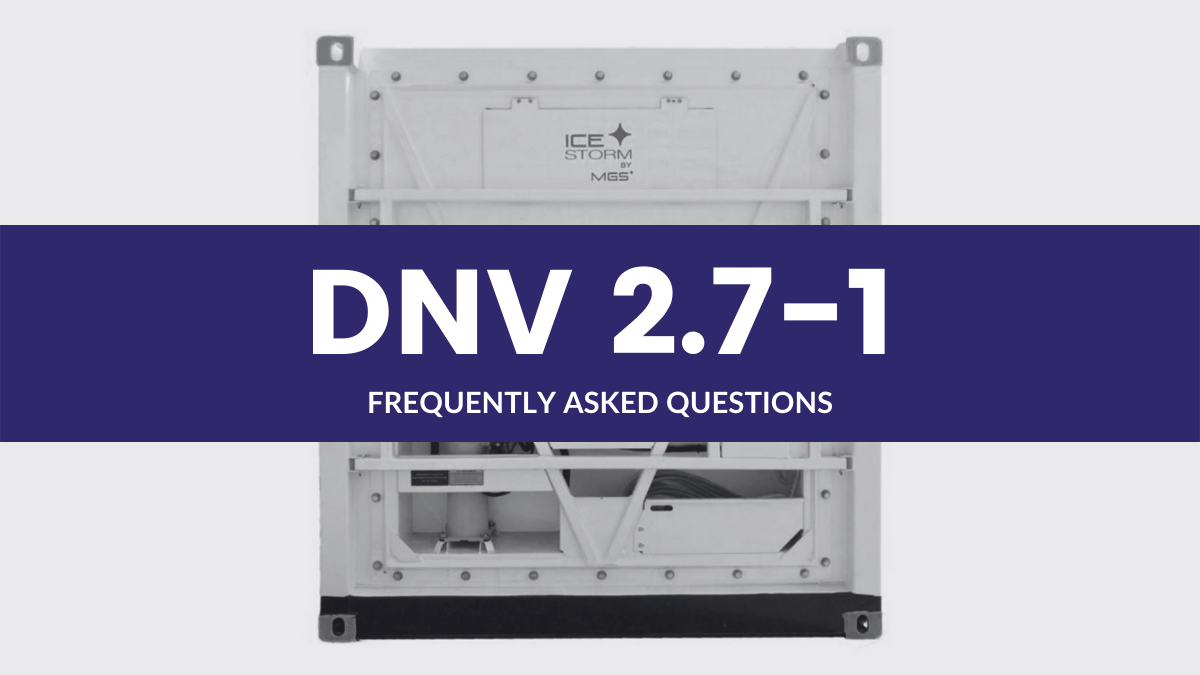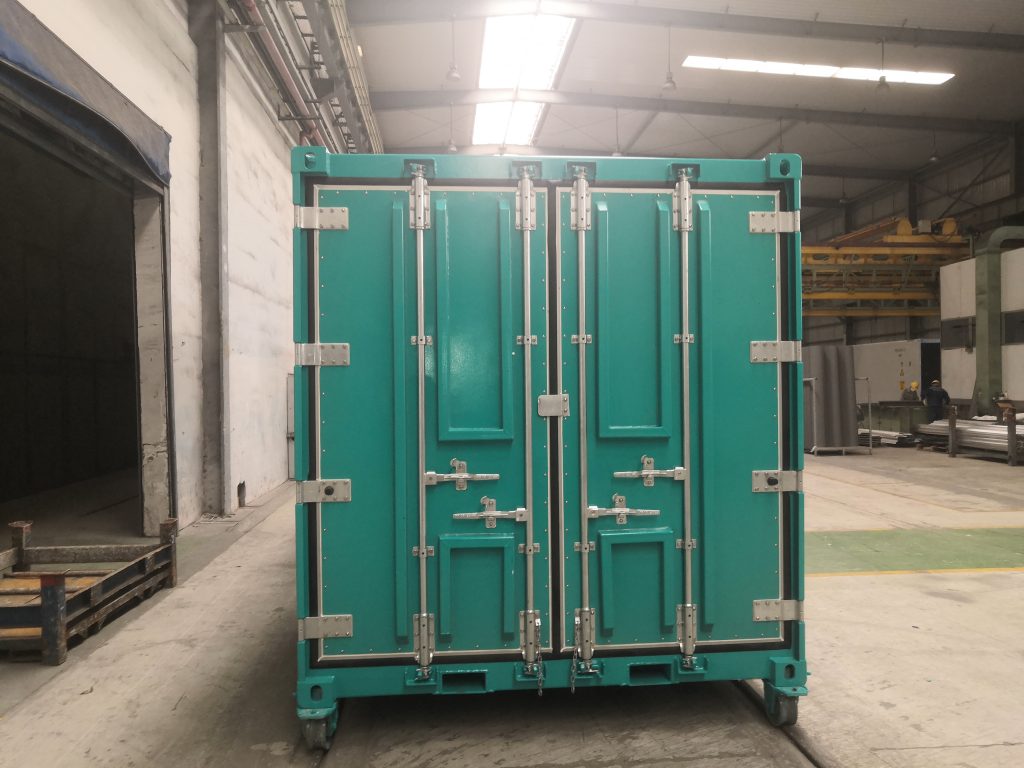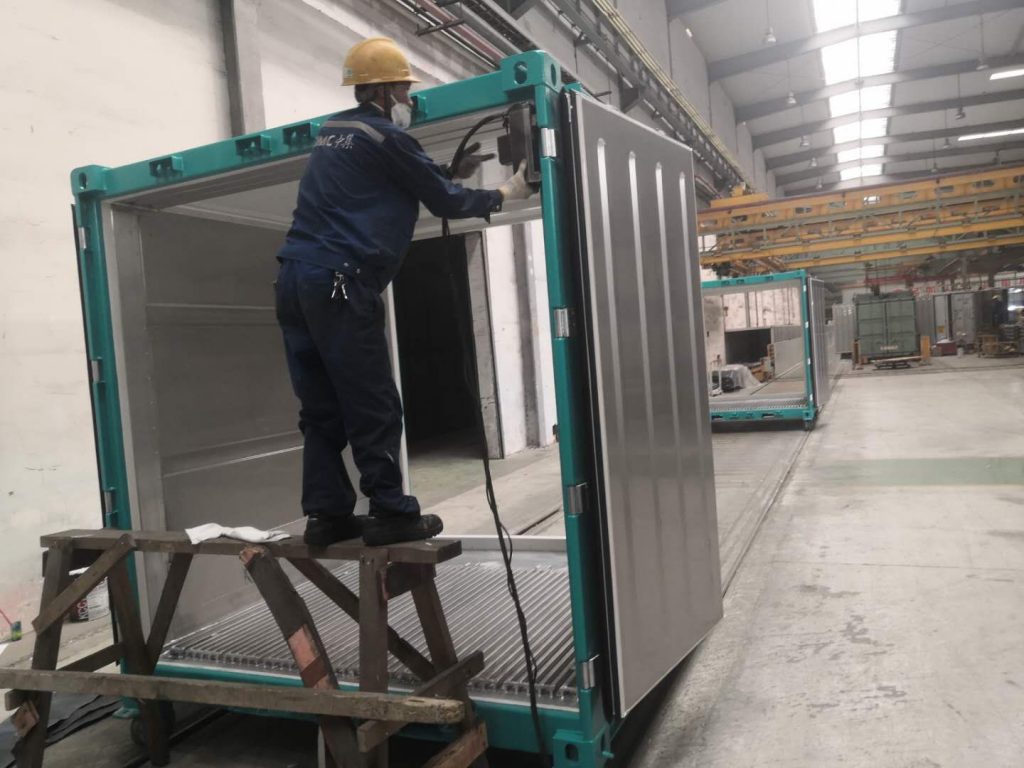When it comes to offshore oil and gas business, DNV Certified is a very common term. Even more so when it comes to purchasing an offshore reefer container.
As it is a very technical term, most offshore reefer purchasers do not take the DNV certification into account. This article explains what you should look out for when it comes to DNV Certification, what certification is needed for offshore reefer containers and more.
What does DNV stand for?
DNV stands for Det Norske Veritas. Established in 1864, the shipping of goods and passengers were not reliable at that time. Therefore, a committee was formed to evaluate and regulate the classification of ships and to reduce uncertainties. The goal of DNV is to establish criteria that guarantee the safety of ocean-going vessels.
Previously, it was actually known as the DNV GL as it was a joint classification with Det Norske Veritas (DNV) and Germainicher Lloyd (GL) to form DNV GL Group. Since 2017, DNV GL has been working to phase away from the standalone name ‘DNV’ but it is still widely used to this day.
Why is it important to have a DNV certification?
DNV certification assures users and customers about the reliability and quality of the devices onboard ships. A DNV certification allows companies such as offshore reefer container providers to position themselves as a trusted player in the shipping industry and is a real asset.
Having DNV certification also gives customers, purchasers and users peace of mind as the certification ensures the reliability of the vessels.
What is an offshore reefer container?
Offshore Reefer Containers, also known as refrigerated containers, are used to transport goods and items that require temperature control during transit. Typically, products such as meat, fruit, vegetables and dairy use reefer containers during shipping.
A reefer container is fitted with a refrigeration unit. This refrigerated unit is connected to an electrical power supply and can be supplied with warm or cold air through an air duct system.
The most essential component of an offshore reefer container is temperature consistency. During long-distance transportation, the temperature consistency helps keep goods fresh and also helps prevent any spoilage.
What is a DNV 2.7-1 Offshore Reefer Container?
As we have established above, the DNV classification ensures quality of containers. A DNV 2.7-1 reefer container is a mobile unit having a maximum gross mass of not more than 25,000 kilograms. It is used to transport goods and equipment across open seas, too, from, or between fixed and floating facilities and ships.
A DNV 2.7-1 certified offshore reefer container is also used for offshore lifting that is designed for installation rather than repetitive transportation.
What is the difference between DNV 2.7-1 and DNV 2.7-3?
According to DNVGL-ST-E273 Section 1.4.3, a POU (portable offshore unit) is a package or unit intended for repeated or single offshore transport and installation/lifting which may also be designed for subsea lifting.
Although the definitions between the DN 2.7-1 and DNV 2.7-3 may seem to be similar, it’s important to understand the primary differences.
This is especially important for design engineers as the design approach is fundamentally different between the two standards.
DNVGL-ST-E271 adheres to a “design by code” philosophy, while DNVGL-ST-E273 is a “design by analysis” approach.
Design By Code
Design by code is a fairly straightforward process.
Basically, if the offshore container falls within specified categories, then you apply the designated design criteria.
The code’s inherent structure limits the design engineer’s subjective decision-making, which results in a more streamlined review process by DNVGL.
This results in a faster and less expensive design review cycle.
Design By Analysis
Design by analysis puts more responsibility on the design engineer for defining the design basis including limits of operation, load case scenarios, and selecting and/or defining proper acceptance criteria.
Since the design engineer assumes more ownership of the design process, the engineering review phase of the certification process is more in-depth and requires a longer review cycle, and is usually more expensive than the design review for 2.7-1.
What is the DNV 2.7-1 standard?
DNV 2.7-1 Standard for Certification was first published in May 1989 as “DNV Certification note 2.7-1 Offshore Freight Containers”.
It was prepared because of other regulations at the time, whether international codes, national requirements, or rules published by Det Norske Veritas (DNV).
The Standard for Certification is concerned with the certification of all types of offshore containers as transport units.
The three typical phases of transport are:
- shoreside (e.g. by forklift truck)
- by supply vessel
- lifting to and from offshore installations
The Standard for Certification includes design requirements related to all three phases.
Under conditions in which offshore containers are often transported and handled, the “normal” rate of wear and tear is high, and damage necessitating repair will occur.
However, containers designed and certified according to this Standard for Certification should have sufficient strength to withstand the normal forces encountered in offshore operations, and not suffer complete failure even if subject to more extreme loads.
How are offshore reefer containers tested?
Offshore containers need to be tested through specific methods to ensure that they are made up to spec, and safe to use.
Both DNV 2.7-1 and 2.7-3 are standard defining requirements and recommended practices covering the transport of offshore containers and portable offshore units.
The standards cover the specific areas of design, manufacturing, testing, certification, and periodic inspection.
Both standards cover the lifting frames of containers and, in most instances, not the equipment contained within the frames.
The requirements are defined based on safe use concerning:
- Lives
- Environment
- Hazard to the vessel or offshore installation
Both standards cover aspects to safe lifting and handling of these offshore containers and units between two floating vessels and between vessels and fixed or floating offshore installations.
What are the other certifications for offshore reefer containers?
Besides the DNV certification, there are 2 other popular certifications for offshore reefer containers.
These certifications are:
MGS Offshore DNV 2.7-1 Reefer Containers
At MGS Offshore, the reefer containers offered are all DNV 2.7-1 certified, such as:
DNV 2.7-1 Standard ICESTORM Reefer
ICESTORM technology is not used anywhere else. The microprocessor controller integrates solid state electronics and enormous processing power so that the refrigeration cycle is at its optimum at all times.
The microprocessor controls the fresh air exchange, records fresh air exchange data and ensures food and produce freshness. This reefer container is certified with DNV 2.7-1 standard as a testament to the consistent product quality and protects against high and damaging levels of carbon dioxide levels.
It also provides ventilation on demand, meaning that the products being shipped are protected as the ICESTORM reefer container provides venting in response to continuing changes in respiratory gases.
DNV 2.7-1 ICE WAVE Reefer Container
The DNV 2.7-1 certified ICE WAVE Reefer Container is designed so that produce and cargo reach the destinations at optimum temperature. The temperature distribution on this reefer container allows for quick regulation and recovery when doors are open and shut. This means that the temperature goes back to its optimal levels quickly so that the shipment is kept fresh.
With a temperature setting range of -30°C to +20°C, the hygienic and easy to clean DNV2.7-1 certified refrigerated container supports offshore heavy duty applications and has a high internal volume capacity of maximum 12.2cu.m.
Conclusion
The DNV2.7-1 certification has certainly reassured customers that the quality of goods during shipment is ensured to arrive in good condition. When shipping meat, produce and dairy to Oil & Gas platforms, it is best to use a DNV Certified Offshore Reefer Container so that the goods do not spoil on the way during shipping. For more information, download our DNV2.7-1 PDF file.
Learn about our DNV 2.7-1 certified 10ft & 8ft offshore reefer container for more information.

Business Director
A graduate (Business) from KDU, Jason Tan, is the current Business Director (Sales) for MGS Icestorm and has been associated with the company for the past 10 years.
With over 13 years in the shipping industry, he has had a significant contribution to Malaysia’s oil and gas industry in the engine and boat supply sector.
His expertise includes managing offshore catering business, offshore reefer containers, AI technology, offshore gas tanks, A60 pressurized cabins, etc. His contributions have helped establish MGS, in partnership (joint venture) with Thermo King and Honeywell to produce state of art Offshore Reefer Container products.



